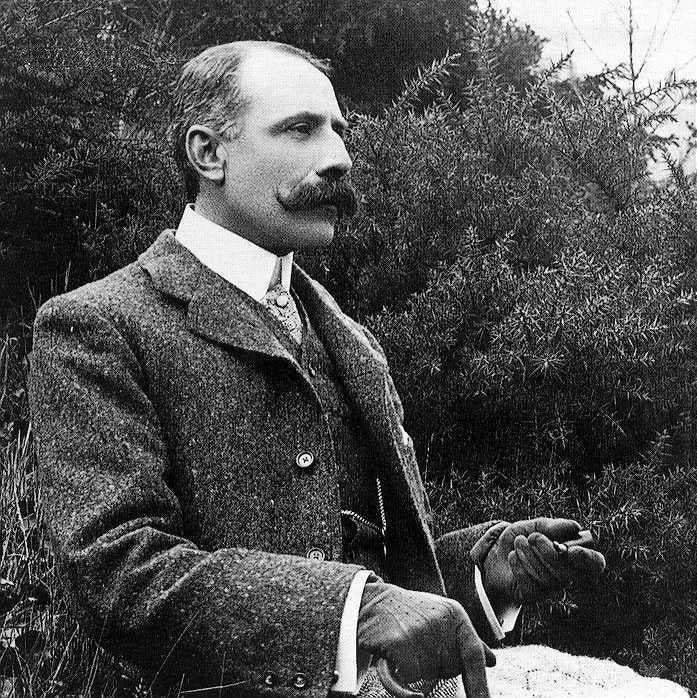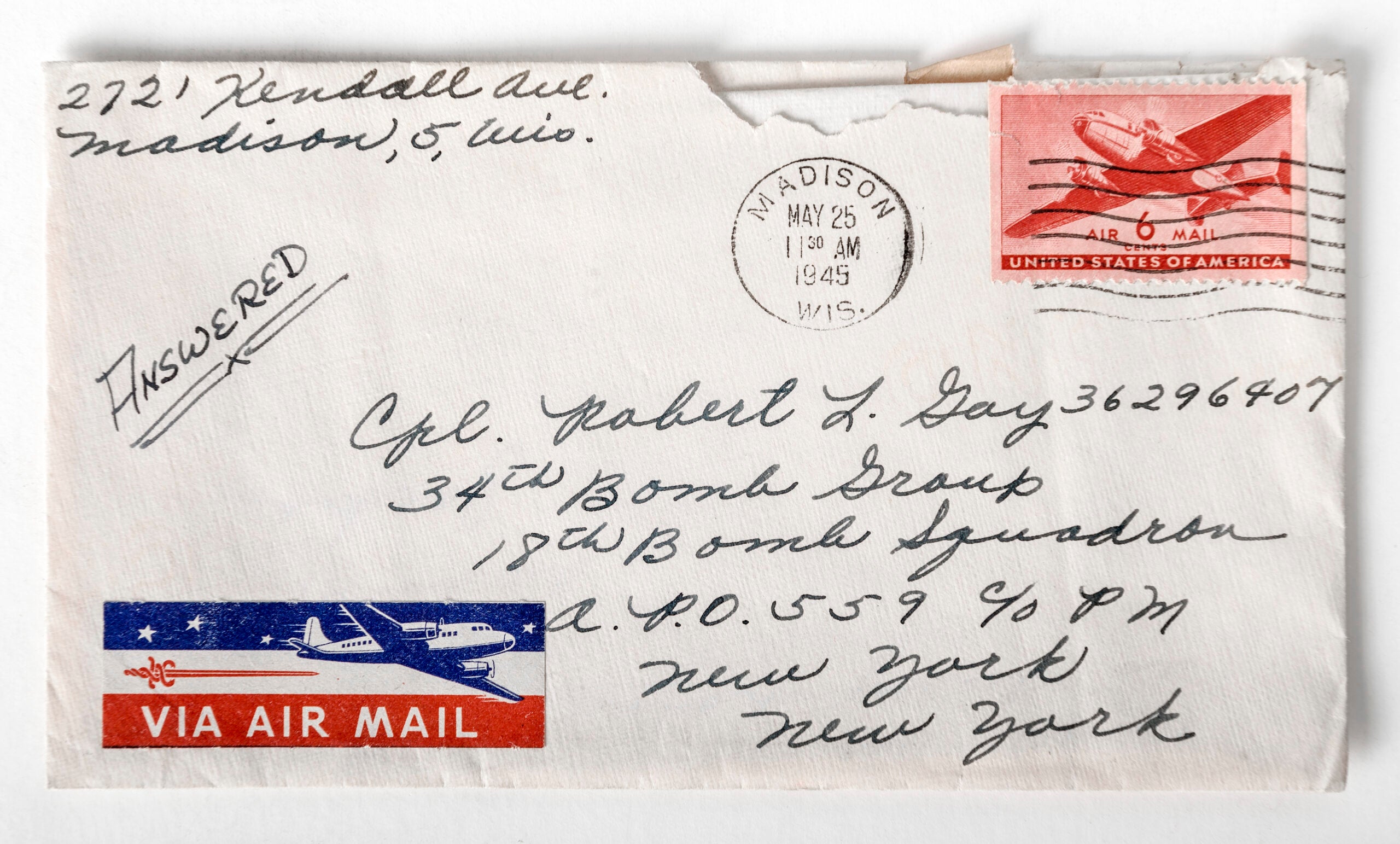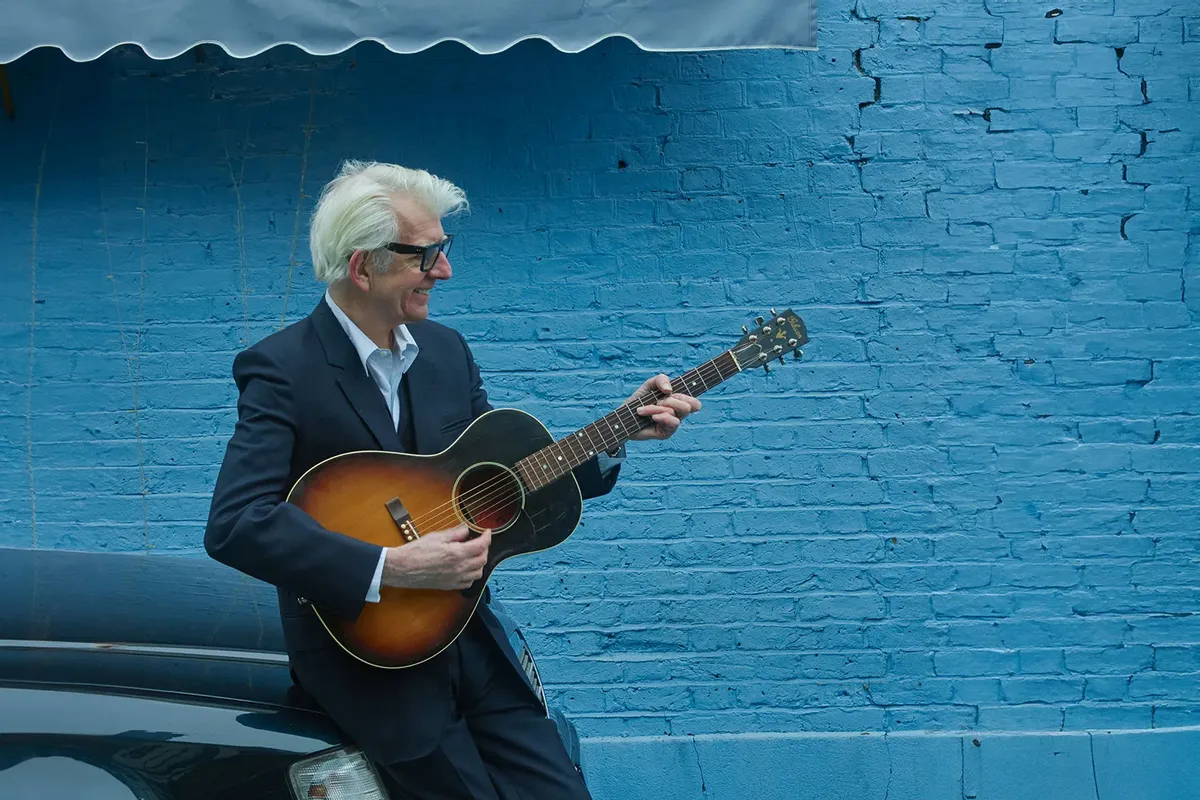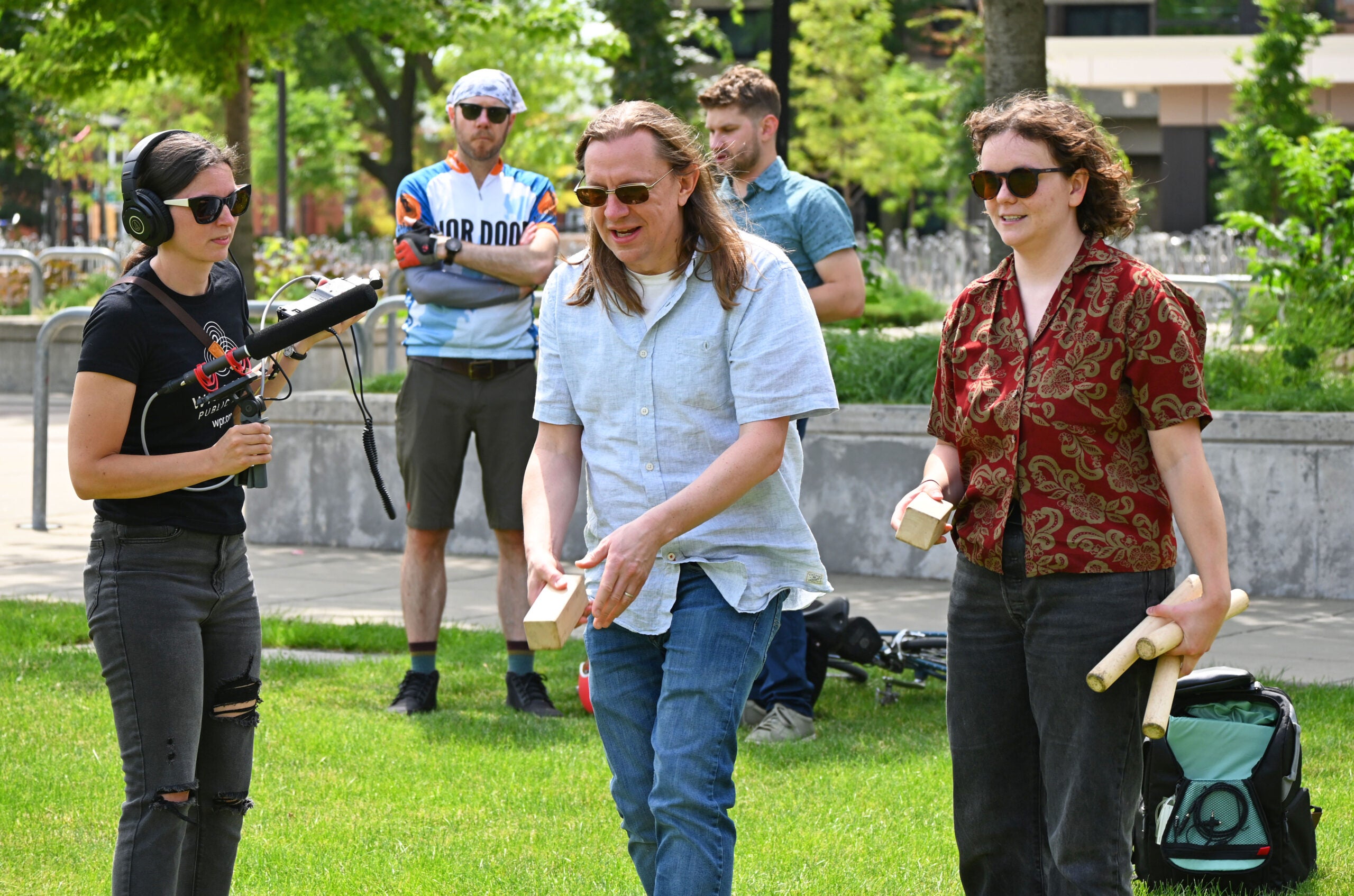In 1901 Edward Elgar began a set of six marches. He never did complete all six. But by the time he had finished the first he had achieved lasting fame.
In 1900 Elgar had been working on his buoyant, cheerful Cockaigne Overture, which contained a passage describing a military procession passing along the streets of London, so the transition to writing marches must have come easily. And he began very auspiciously. Elgar wrote to a friend, “In haste and joyful! Gosh, man! I’ve got a tune in my head!” A few months later he called his friend Dorabella into his study and announced, “I’ve got a tune that will knock ‘em—knock ‘’em flat.” He then played for her his “Pomp and Circumstance March” Number 1 in D.
Within three months he had completed the second march. Elgar conducted the two pieces in Liverpool, and a few months later they were performed again in London at a Queen’s Hall Promenade Concert. Henry Wood was the conductor. Elgar wasn’t present at what proved to be quite a spectacle.
Stay informed on the latest news
Sign up for WPR’s email newsletter.
Henry Wood later recalled that at the end of the first march “the people simply rose and yelled. I had to play it again—with the same result. In fact they refused to let me get on with the program. I went off and fetched Henry Dearth, who was to sing “Hiawatha’s Vision,” but they would not listen. Merely to restore order I played the march a third time.”
Of course, it was a difficult act to follow, and by 1910 Elgar was still trying. His wife Alice recorded in her diary: “E working on ‘Pomp and Circumstance March’—not very well and rather depressed.”
Elgar stopped with a total of five marches in 1930. [Elgar could never have predicted that it would take him 29 years to complete that fifth march and that the sixth would go awry and remain unfinished,] But 29 years earlier he had been more right than he knew when he had announced, “I’ve got a tune that will knock ‘em—knock ‘em flat.”
Wisconsin Public Radio, © Copyright 2025, Board of Regents of the University of Wisconsin System and Wisconsin Educational Communications Board.





